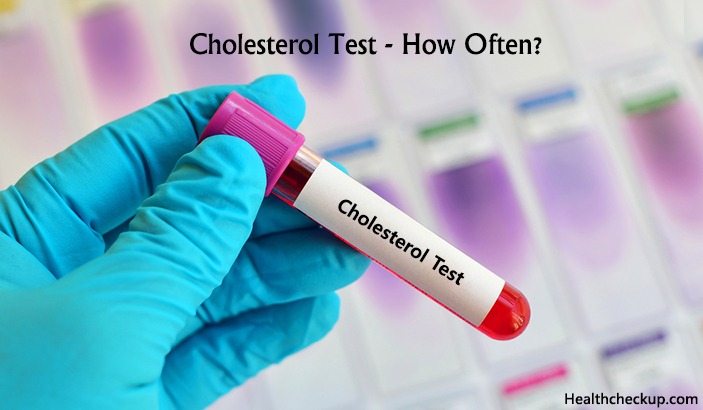High cholesterol can be a cause for many health problems, heart disease being a major one of these. A full cholesterol check up, medically known as lipid profile or lipid panel, is important to determine the cholesterol levels in the blood. Usually, high cholesterol does not have any specific symptoms or signs. This can lead to even more severe consequences and health issues.
What is Cholesterol?
Cholesterol is basically a fatty substance that is carried around the body by proteins. The combination of proteins and cholesterol is called lipoprotein. These lipoproteins are of two main types – Low Density Lipoproteins (LDL) and High Density Lipoproteins (HDL).
A Complete Lipid Profile Includes Calculating Four Types of Lipids (fats) in The Blood, Including:
Total Cholesterol
This includes the total content of cholesterol in the blood.
Low-density Lipoprotein (LDL) Cholesterol
Also known as bad cholesterol, high level of LDL in the blood can lead to plaque build-up (fatty deposits) in the arteries thus reducing the blood flow. Many times, these fatty deposits become a cause of heart diseases and other major health issues.
High-Density Lipoprotein (HDL) Cholesterol
Also referred as good cholesterol sometimes, the HDL is helpful to bring down the LDL levels. This further helps to keep the arteries open, thus allowing better blood flow.
Triglycerides
Triglycerides, another type of fat existing in the blood, are the unused and non-required calories from food. These are stored in the fat cells. High levels of triglycerides are related to many factors, like obesity, excessive intake of sweets, smoking, drinking, diabetes, and being sedentary along with high sugar levels.
If you go for a cholesterol check up, it is measured in units called ‘millimols per liter of blood’, written as “mmol/l”. The normal range for total cholesterol level is below 4mmol/l, particularly if your body has high cholesterol tendency or have had a stroke or any other circulatory disease. More specifically, it is important to maintain the LDL level below 2mmo/l and HDL level should be above 1mmol/l.
Who Should Get Cholesterol Checked?
Usually, it is important to get the cholesterol check done every five years for adults at average risk of heart disease. However, the testing becomes more frequently necessary in case of abnormal cholesterol test results from initial tests. Besides, other factors that decide for cholesterol test how often include:
- Obesity
- Sedentary Lifestyle
- Family history of heart attack or high cholesterol
- Diabetes
- After the age of 45 years for men and 55 years for women
- Smoking habits
- Eating a high fat diet
Reasons to Get a Regular Cholesterol Check up
Although healthy cholesterol levels are crucial for proper functioning of the body, high levels of cholesterol in the blood can interfere with proper blood circulation through the body. Besides, it can also cause various health ailments that can be life threatening. Some health risks associated with high cholesterol include:
Stroke
Stroke occurs due to reduced blood supply to some part of the brain. Usually, a stroke occurs when the oxygen carrying blood vessel that also provides essential nutrients to the brain gets blocked or bursts. With the advent of a stroke, part of the brain doesn’t receive required blood and oxygen, thus begins to die.
Coronary Heart Disease
This is the main risk associated with high cholesterol. High level of blood cholesterol can raise the risk of getting heart disease. High cholesterol can build up on artery walls. With time, this plaque build-up on walls of arteries can cause them to harden. This condition further causes the narrowing of arteries thus slowing the blood flow to the heart, which can be a major cause of heart attack.
High Blood Pressure
High blood pressure and high cholesterol are closely associated. Hardening and narrowing of arteries due to calcium and cholesterol plaque can pose strain to the heart thus causing it to pump harder. Consequently, blood pressure can rise to abnormal levels.
Type II Diabetes
This is another major disease linked to high cholesterol. This is because diabetes can influence different cholesterol levels. In spite of controlled blood sugar levels, diabetic patients have a tendency towards higher triglycerides and LDL levels and lower HDL levels. This further increases the risk of narrowing of arteries thus being a cause of stroke and heart attacks.
If you want to avoid these health issues resulting from high cholesterol, it is important to get regular cholesterol check up done and follow up with appropriate treatment. Also ask your doctor about cholesterol test how often is required to maintain healthy levels and stay safe and healthy.
Medically Reviewed By

Maanasi specializes in health topics including diet and nutrition. A mother of an untiring seven year old, she enjoys nurturing her love affair with English. She is often found nestled with a book, plopped against a dozen pillows, smiling away at the brink of finishing yet another book of the many dozens, that adorn the shelves of her Mini Library!









